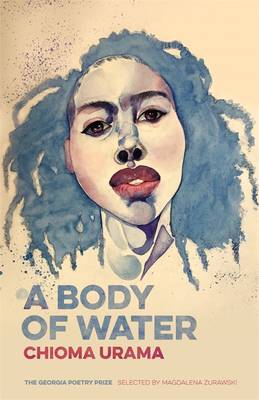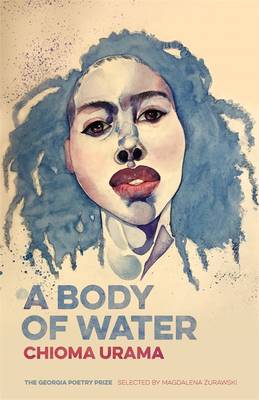
- Retrait gratuit dans votre magasin Club
- 7.000.000 titres dans notre catalogue
- Payer en toute sécurité
- Toujours un magasin près de chez vous
- Retrait gratuit dans votre magasin Club
- 7.000.000 titres dans notre catalogue
- Payer en toute sécurité
- Toujours un magasin près de chez vous
33,45 €
+ 66 points
Description
Beautiful and lyrical, Chioma Urama's A Body of Water is a poetic exploration of ancestry in the American South. These poems are the result of a conversation Urama opened with her ancestors, whose documented and oral histories have been fragmented by a history of enslavement. Urama's examination of generational trauma collapses linear time and posits that the traumas of the past are present within the consciousness of our bodies until we transmute the energy surrounding them.
The work ebbs and flows between pared-down poems where erasure and white space take on substance and roiling lyric essays that fold in divergent voices from historic documents, music, and film. This collection is both vulnerable and political; a meditation on love and grief; an exploration of loss and connectivity. These poems embrace imagination as a tool to emotionally traverse spaces within history that we are told we cannot enter. A Body of Water is an act of remembering, engaging with the idea that "all water has a perfect memory," and nothing is ever truly lost.Spécifications
Parties prenantes
- Auteur(s) :
- Editeur:
Contenu
- Nombre de pages :
- 104
- Langue:
- Anglais
- Collection :
Caractéristiques
- EAN:
- 9780820358574
- Date de parution :
- 15-02-21
- Format:
- Livre broché
- Format numérique:
- Trade paperback (VS)
- Dimensions :
- 196 mm x 213 mm
- Poids :
- 136 g







